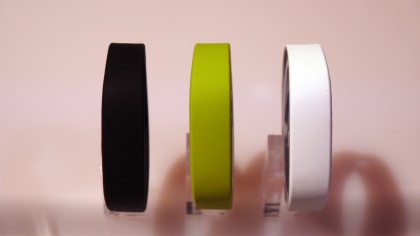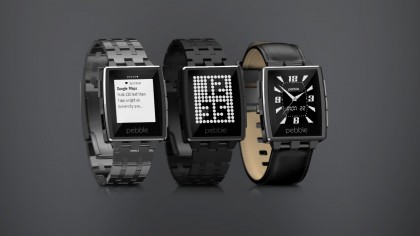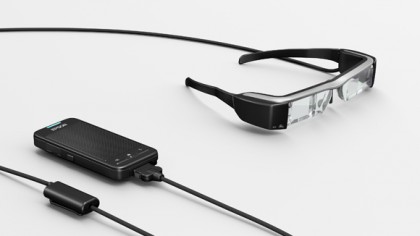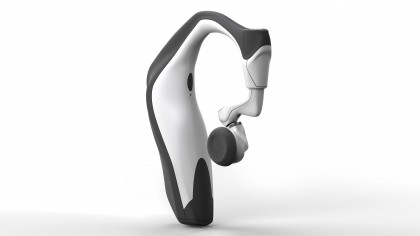The wearable tech that got pulses racing at CES 2014
There's a big future in small devices
Straight to the core
Yet the Sony Core idea isn't confined to fitness tracking. Sony plans to launch a life-logging app alongside the sensor, encouraging you to keep tabs on the music you've listened to, the photos you've snapped and the tweets you've sent. This is wrist-tech with a twist.

These aren't the only wearables on show at CES 2014. Pebble has updated its smartwatch with a new Pebble Steel model that encases the e-paper display inside a stylish stainless steel casing. The announcement of an official app store for the Pebble smartwatch will extend its considerable functionality even further. Watch this space.

Google Glass offers another wearable computing option, although with a significantly higher price tag. It's why Epson has unveiled its cheaper Moverio BT-200 smart glasses at CES, featuring a transparent 960 x 540 resolution display. Built-in motion sensors detect the movements of your head, while Dolby Digital surround sound pumps noise into your ears.

Other companies are taking different approaches to body sensing and wearable technology. The Withings Aura is a dedicated sleep-tracking system, not so much one you wear, but one you lie down on. The padded sensor is designed to be slipped underneath your mattress, where it records your heart rate, body movement and breathing while you sleep.
Red alert
The Netamo June doesn't track your activity at all. Neither can it alert you to phone calls or text messages that arrive on your smartphone. Instead, this plastic sensor monitors your exposure to the sun and alerts you if you need to take action - like putting on sun cream. Taking a leaf out of the Core's book, the sensor can be worn on a bracelet or pinned to clothing.
The best wearables will be those that solve a specific problem. The Memini camera is one such gadget, a wearable high-definition video camera that constantly records what it sees, giving you the option to save the last five minutes of footage.
Its creators call it 'Recall' - the ability to "save moments in high definition video, after they happen – because we understand that the best moments in life tend to happen without warning."
Sign up for breaking news, reviews, opinion, top tech deals, and more.

Not convinced that wearables are poised to be the next stage in the evolution of mobile? The fact that technology behemoths like LG and Sony are jumping on board speaks volumes. Intel is also convinced that wearable gadgetry has a big, bright future.
It used CES 2014 to reveal several technology concepts, including Jarvis (a voice-activated virtual assistant baked into a Bluetooth headset) and fitness-tracking earbuds.
What's in it for Intel? Just as Intel pushed the idea of Ultrabooks powered by its nimble Core processors, the chip-maker has developed a new class of mobile computer that's ideally suited for small devices. According to Intel, its new Edison product is a "a full Pentium class PC the size of an SD card." It's already been demonstrated as part of a wearable baby sensor.
Of course, wearable technology faces some stiff challenges. Functionality remains limited and battery life is often poor.
But the smartwatches and rubbery fitness/activity trackers of today point the way towards a future where our relationship with technology will become significantly closer.
- It's not just wearable tech at CES 2014, here's what else is on at the show.